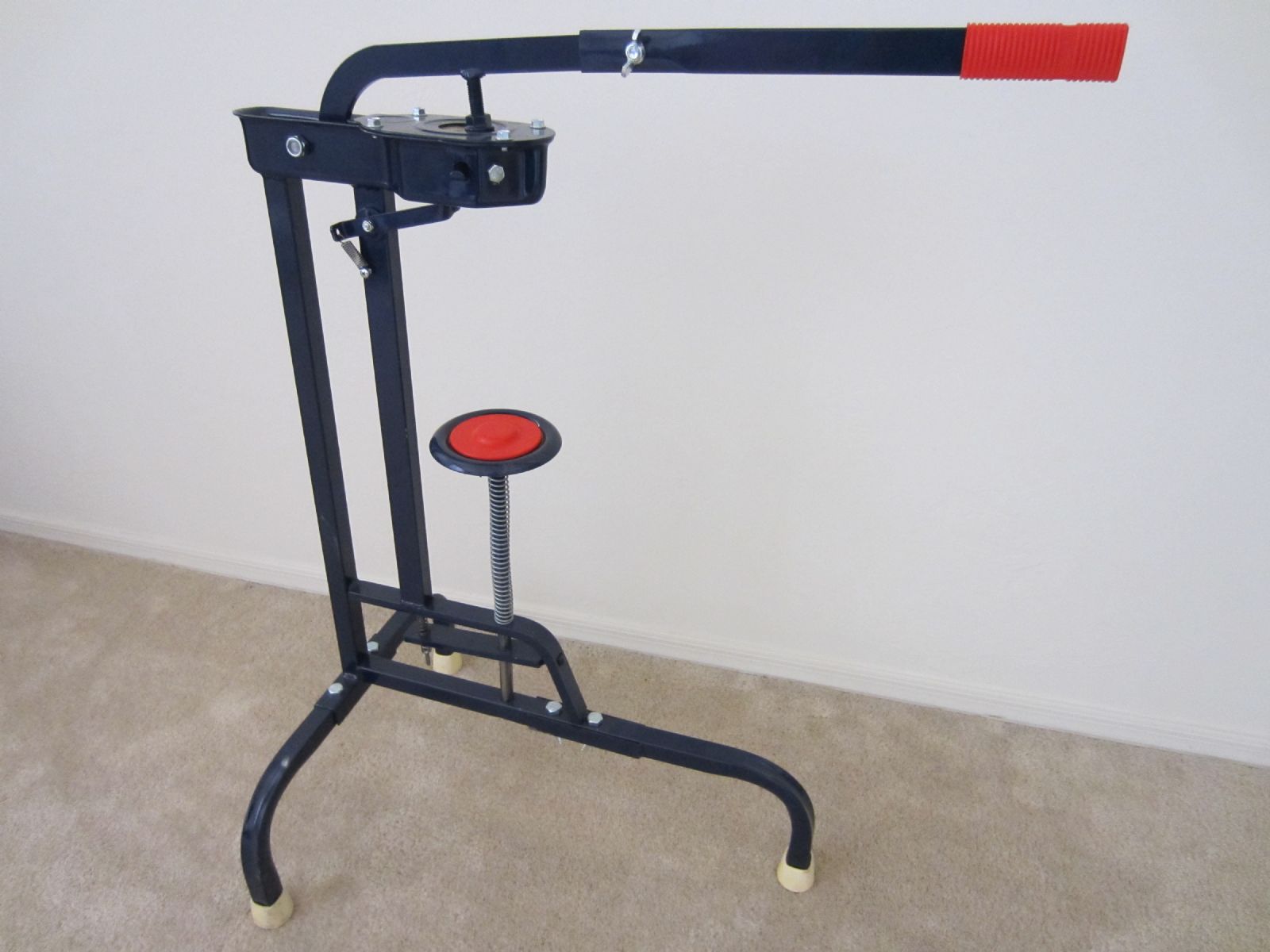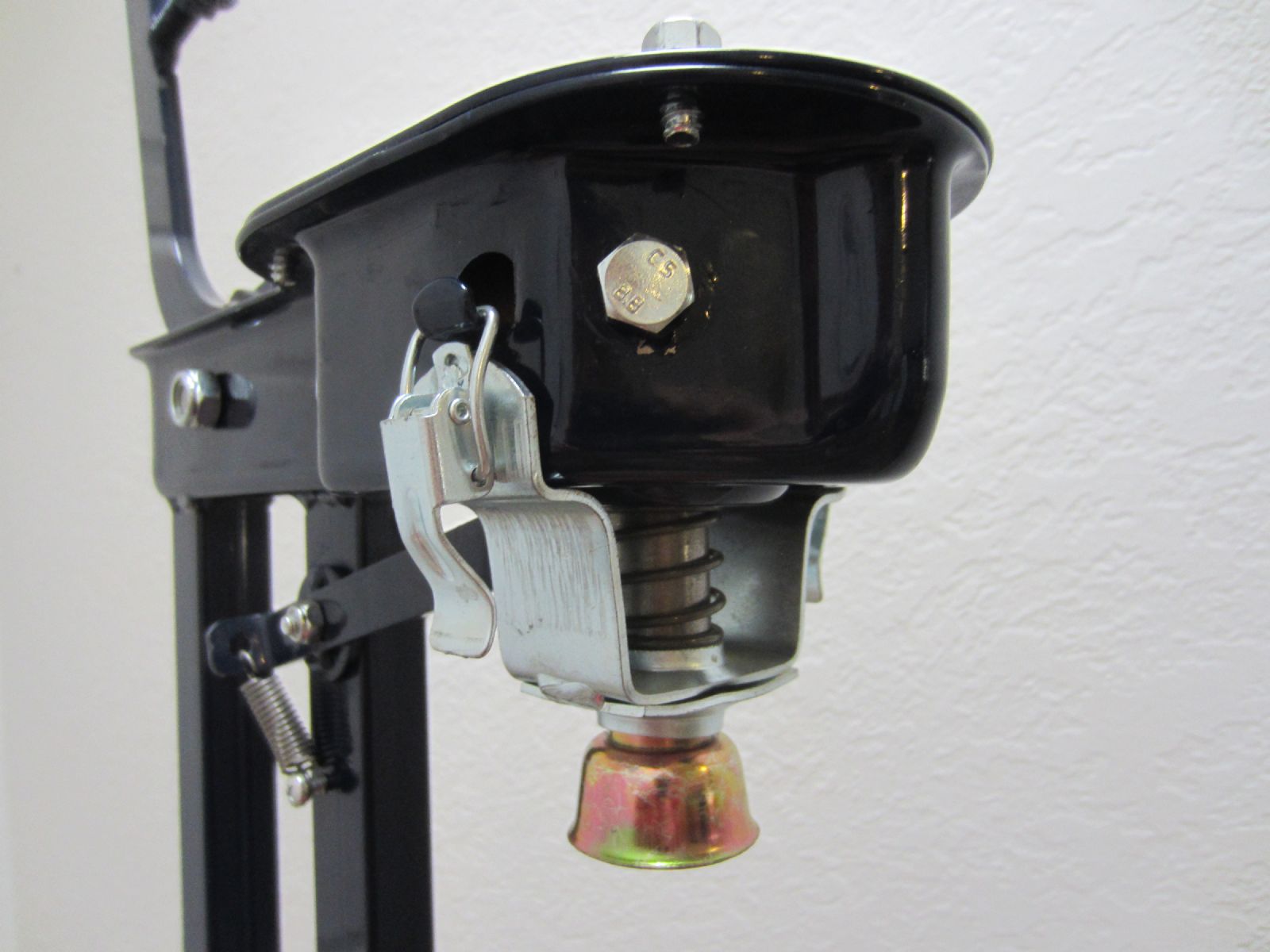Put A Cork In It! How to Cork Belgian Beer Bottles
By DANIEL J. LEONARD
So you wanna up your bottling game, huh? Well, you've come to the right place. Whether you’re looking to brew for that special event, or gifting some of your choice homebrew to a lucky few, nothing adds that touch of class to your beer like presenting it in an elegant, sophisticated, curvy Belgian-style bottle.
Though we can’t promise bottling with Belgian-style bottles will improve the quality of your brew, we can promise that it will improve the overall perceived quality of your brew, and since perception is reality... so, yeah, your beer will be better in a Belgian bottle.
Because if you went to the trouble to figure out to how procure the knowledge and special equipment necessary to cork your beloved homebrew in the grand cru of bottles, then said homebrew must be worthy of the bottle, right?
We couldn’t agree more.
How do you cork Belgian-style bottles?
In short, you will need Belgian-style bottles (we had to), Belgian corks, small wire hoods/ cages to fit over the cork and secure under the mouth of the bottle, and an appropriate corker. Keep in mind that some Belgian beers are bottled in Champagne-style bottles, and not all corkers will allow you to cork Champagne-style bottles.
[Typical Belgian-style beer bottle.]
Belgian bottles are brown, about the same height as a wine bottle, hold 750 ml of beer, and have an overly rounded top compared to a standard 12 oz beer bottle which makes capping impossible, hence the need for corking.
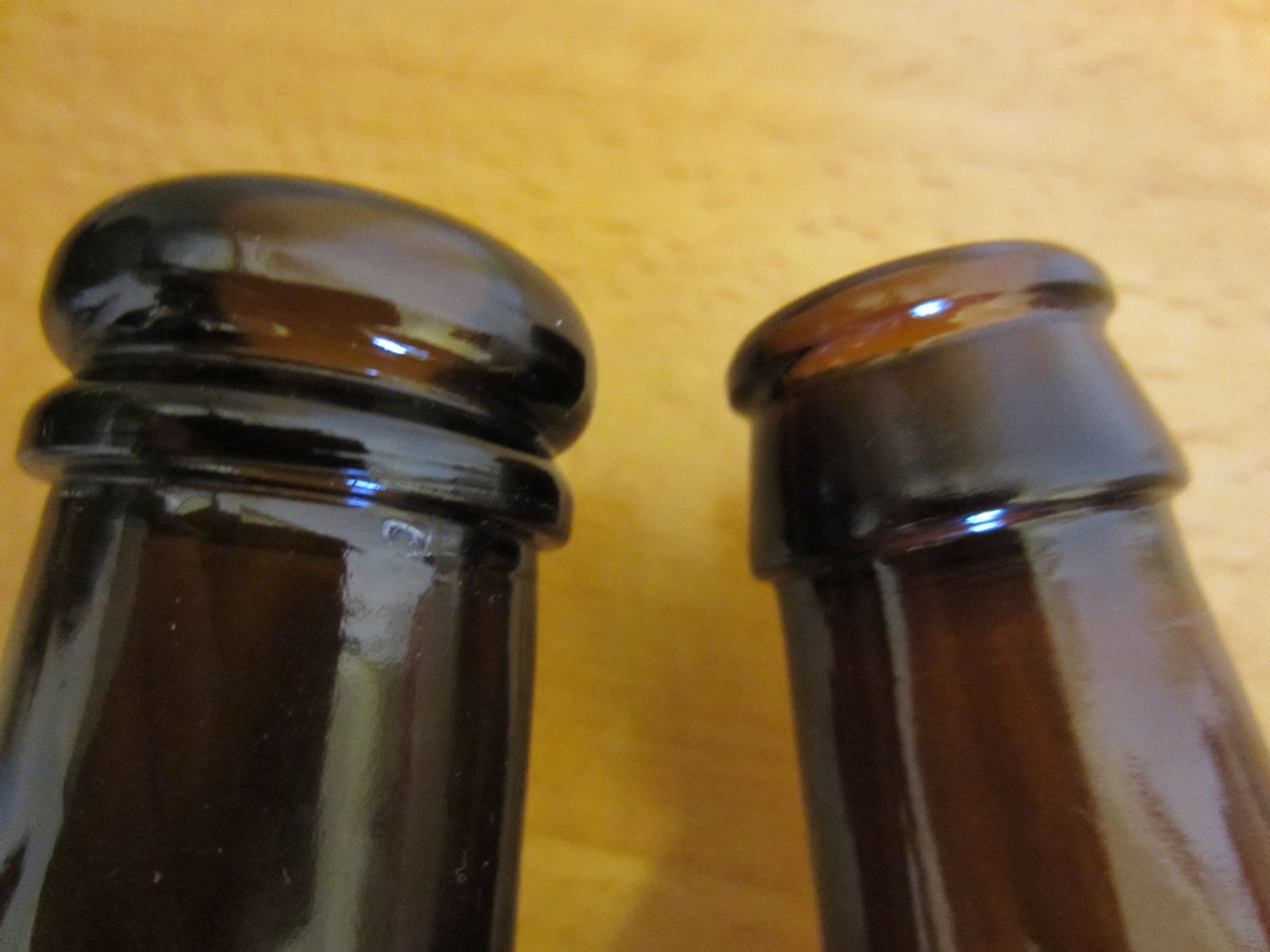
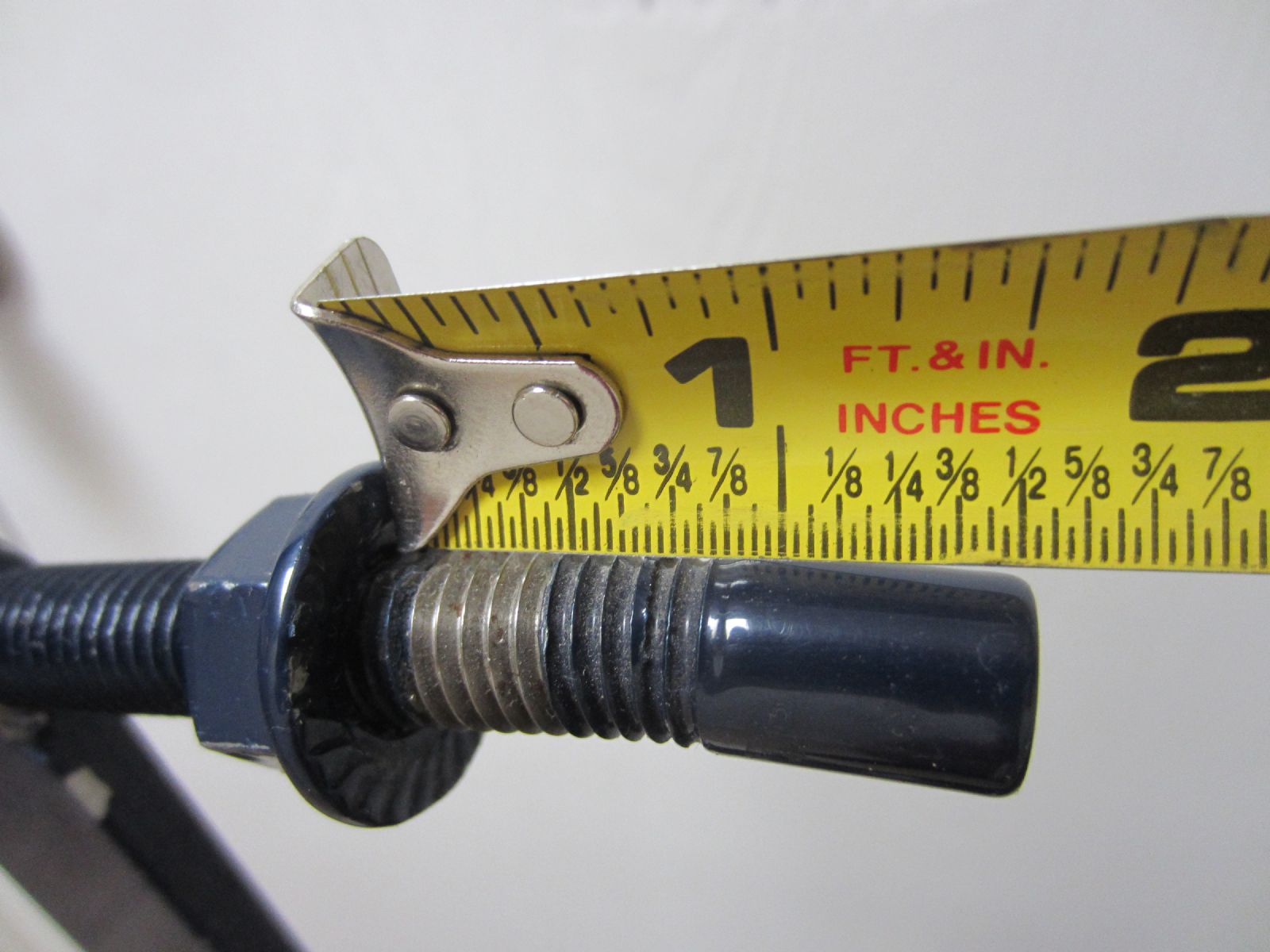
Let's think this through: For the most part, beer is carbonated and wine is not, which is why most wine bottles are merely corked and not further secured with a cage or other device in order to keep the cork from being pushed out by the pressure from the CO2. Not to mention, wine bottle glass is typically thinner than beer bottle glass which means even if the cork somehow managed to stay in place, you'd be risking the bottle exploding under the pressure of carbonation from the beer.
The exceptions to this are the kind of bottles that are used for sparkling wine or Champagne, which are very thick and designed to withstand highly carbonated beverages.
Lastly, very few wine bottles are brown, including Champagne style bottles, which is important because brown bottles protect beer from becoming light struck and turning skunky. If you've ever had a skunky beer from a green bottle, you can appreciate why bottling beer in brown bottles is usually the smarter choice.
So to answer the question: Technically, you can bottle beer in a wine bottle, however it's probably not something you'd want to do twice.
What type of corker to buy?
If you can’t borrow or rent a corker from a friend or your local homebrew shop, then you’re probably going to have to make a buying decision. Here, we’re only considering the Portuguese Floor Corker, the Colonna Capper Corker, and the Champagne Floor Corker.
Yes, there are other corkers out there, like a pneumatic corker which can cost upwards of $2,000, or a plastic plunger corker which doesn’t really work with Belgian bottles, but we have narrowed down the list to the most likely candidates for corking Belgian-style bottles at the homebrewing level.
Though we’ve done a lot of the homework for you, it’s up to you to figure out the best option that works for you. [Spoiler Alert: We went with the Champagne Floor Corker.]
Portuguese Floor Corker
Pros: The mid-priced option for corking, priced between $60 and $80. Can be used to bottle Belgian bottles, regular beer bottles, and wine bottles.
Cons: Reportedly can damage the sides of the cork when being inserted into Belgian bottles. Reportedly takes some adjusting to insert corks into Belgian style bottles. Somewhat bulky to store.
Colonna Capper and Corker
* Keep in mind, for corking Belgian bottles, you will need the Colonna Capper and Corker, not just the Colonna Capper. There is a difference, one of which being that the Colonna Capper will not cork your Belgian bottles; kinda defeats the purpose, que no?
Pros: This is a small, versatile capper which can handle regular beer bottles, Belgian-style bottles, and wine bottles. Usually the lowest cost solution, retailing at about $60, which is often less expensive than the Portuguese Floor Corker which retails anywhere from $60-$75, and certainly less expensive than a Champagne Floor Corker which can run from $120 to $170. Also, the Colonna Capper Corker reportedly doesn’t damage the sides of the cork as with the Portuguese Floor Corker. The most compact of the cappers discussed, requiring little storage space.
Cons: Leaves a mark or indentation on the top of the cork when pressing the cork into the bottle. Unable to bottle champagne style bottles, which may be a problem for some types of Belgian bottles, in particular the Belgian bottles that are bottled in champagne style bottles! Almost entirely made out of plastic, but even so is reportedly very sturdy.
Champagne Floor Corker
* Note that the Champagne Floor Corker is sometimes incorrectly referred to as an Italian Floor Corker, but they are different in that an Italian Floor Corker does not accept Champagne-style corks.
Pros: Sometimes called the ‘Cadillac’ or ‘God Father’ of floor corkers, the Champagne Floor Corker (popularly manufactured by "Ferrari") is the most versatile of corkers and can be used to cork Belgian style bottles, Champagne style bottles, wine bottles, and beer bottles (even European sized bottle caps!), although you'll need a bottling adaptor to bottle beer caps (see image below).
[The bottling adaptor attaches to the floor corker to allow for capping bottles with crown caps, including larger European sized crown caps (29 mm).]
The Champagne Floor Corker does not mark or damage the corks when inserting into bottles. Very little adjustment or effort is needed, and therefore it is usually considered the easiest to use and ideal when having to cork several cases.
As mentioned, you can use a Champagne Floor Corker to cork and cage Champagne-style bottles and Belgian-style bottles. However, with Champagne-style bottles you also have the option of fully inserting the cork into the bottle so that it's flush with the mouth of the bottle, then foregoing the cage and instead cap with a European crown cap (29 mm).
Cons: Most expensive corking solution (runs from $120 to $170) in comparison to the Colonna Capper Corker and the Portuguese Floor Corker. Some companies sell the Bottle Housing bell separately from the actual corker, but that attachment would be used for corking champagne corks only. Somewhat bulky to store.
Best price for champagne floor corker?
The lowest price we have seen is from midwestsupplies, who retails the corker for $119.95-$129.95, but the kicker is the comparatively lower shipping cost. Midwestsupplies also carries Belgian corks and the wire hoods/ cages for very reasonable prices and had very helpful and friendly staff... you’d almost think they were homebrewers! [Disclaimer: prices subject to change and we didn’t look at every supplier under the sun, so shop around.]
What type of corks do I need and where do I get them?
For the standard brown Belgian bottle, you will almost always need a 25.5 mm Belgian cork, sometimes referred to as reference corks. Other Belgian beer bottles, like those of Saison Dupont or La Choulette, are bottled in green champagne style bottles, but you should be able to use the 25.5 mm Belgian corks just fine. Some Belgian beers, like those from Lindemans, may require smaller corks, and keep in mind those bottles have the cork fully compressed into the bottle and are capped with a larger than the standard size bottle cap over the mouth of the bottle instead of secured with a wire cage. When in doubt, a good rule of thumb is to measure the size of the bottle opening with a pair of calipers and then buy the corresponding cork.
Not all home brew supply stores will carry the exact type of cork you want. For example, they may not have the right size of cork or may only carry plastic corks. However, here is a quick list of online retailers who carry a wide variety of corks to suit most of your corking needs:
4. homebrewers.com (a.k.a. home brewers outpost)
How many Belgian bottles will I need for a 5 gallon batch?
You’ll need about 25 Belgian-style bottles for a 5 gallon batch. Belgian bottles generally hold 750 ml, and there are 3,785.4 ml in a gallon, so you would need about 5.05 bottles per gallon. Since you know you will need about 5.05 bottles per gallon, you can then just multiply 5.05 by how ever many gallons you are brewing, so in this case 5.05 x’s 5 gallons = 25.25 bottles.
The other way to calculate how many bottles you’d need for 5 gallons is this: 3,785.4 (ml per gallon) x’s 5 (gallons) = 18,927 (ml) / 750 (ml per Belgian bottle) = 25.23 bottles. For 10 gallons, you’d need 50.47 bottles (25.23 x’s 2), and so on.
How many gallons would I need to brew to fill 70 Belgian bottles?
Sometimes you'll want to know how many gallons you’d need to brew in order to fill a certain number of 750 ml Belgian bottles. For example, let's imagine you want to know how many gallons you’d need to brew in order to bottle 70 Belgian bottles. In this case you’d need to brew approximately 13.87 gallons (70 bottles x’s 750 ml = 52,500 ml / 3,785.4 = 13.87 gallons, or nearly 14 gallons.)
Where can I buy Belgian-style bottles and how much will it cost?
If you can’t scrape together enough empty bottles from your personal Belgian drinking affairs, ask your friends of more discerning tastes to wash and save their Belgian-style bottles for you in exchange for giving them a Belgian bottle back filled with your next homebrew.
However, if you're in a time crunch and supplies are low, it may be time to crack open the wallet and contribute once again to the ever deserving homebrewing economy.
It should go without saying to check with your local homebrew shop first to see if they carry Belgian bottles. Even if they cost a little more per 12 pack, you’ll save on shipping and you’ll be helping grow the homebrew community in your town. If that fails, there are at least a few options to purchasing Belgian-style bottles online, and sometimes the best deal boils down to shipping costs, which can depend on how many bottles you need.
Below, we considered a few different online suppliers when it came to purchasing four 12 packs of Belgian bottles, which is about the number of bottles you’d need to bottle a 10 gallon batch. This list is by no means exhaustive, so feel free to add to it in the non-existent comments below, and keep in mind, prices are subject to change, so shop around for the best deal.
1. Midwestsupplies: Belgian botttes were on sale when we first checked back in 2010 for $20 per 12 pack and shipping on four 12 packs of Belgian bottles was $26.31 [shipping may vary depending on your location]. So the total overall cost came to about $106. (A 12 pack of Belgian bottles was on sale for $20 at the time down from $23.99 as far as we recall). This was the lowest cost deal we found at the time, however a recent check on 3/10/14 had homebrewers.com with the better deal (see below). We also ended up buying corks, cages and a Champagne Floor Corker from Midwest.
2. Northern Brewer: Northern Brewer offered an attractive $7.99 flat shipping rate, but it didn’t apply to heavier items like Belgian bottles. A 12 pack of Belgian bottles was $23.99 as of 3/10/14, and shipping per 12 pack came out to $13.30 [shipping may vary depending on your location]. So for four 12 packs of Belgian bottles, the total cost came to $161.64. We think Northern Brewer’s $7.99 flat shipping rate can be pretty attractive when it comes to ordering certain things, but it didn't apply here.
3. homebrewers.com (a.k.a. home brewers outpost): A 12 pack of Belgian bottles was $21.99 as of 3/10/14, plus shipping was free on orders over $59. A pretty good deal- actually probably the best deal as of 3/10/14!
Like this tutorial? Questions, comments, free beer? Feel free to drop me a line at dan@beersyndicate.com, or follow us on Twitter at twitter.com/beersyndicate.
From The Blog
Tips for Craft Brewery Success
The best business secrets wikileaked from the private records of the most successful craft breweries in the United States.
Beer Names You Might Be Saying Wrong
Enlighten yourself, but please don't correct others. It's just one of those Catch-69 situations, like when somebody has ketchup on their face.
The Beer Quiz
What's your beer IQ? This test measures an individual’s beer knowledge through a series of questions of varying levels of difficulty: Normal, Hard, and Insane.
Homebrewing Techniques
Beat the Stuck Fermentation Monster
You've brewed the perfect wort. You bullseyed your strike temp, you had a most excellent cold break, your OG was right on the money...
How to Cork Belgian Beer Bottles
So you wanna up your bottling game, huh? Well, you've come to the right place.
Top 40 Ways to Improve Your Homebrew
Admit it: No matter if in a DeLorean, TARDIS, or a hot tub, we’ve all thought about what advice we might give our younger selves if we could go back in time.
DIY Projects
How to Polish a Keg
Shining up your keg will probably not improve the taste of your beer, but it looks cool and inspires epic brewing sessions!
Convert a Refrigerator Into a Fermentation Chamber
Decided to take a huge step in improving your homebrew and set up a temperature controlled fermentation system, have ya? Smart thinking.
How to Convert a Keg Into a Brew Kettle
Convert that old keg into a brewing kettle. The advantages of using a keg for homebrewing pretty much come down to quality and cost.
|
|
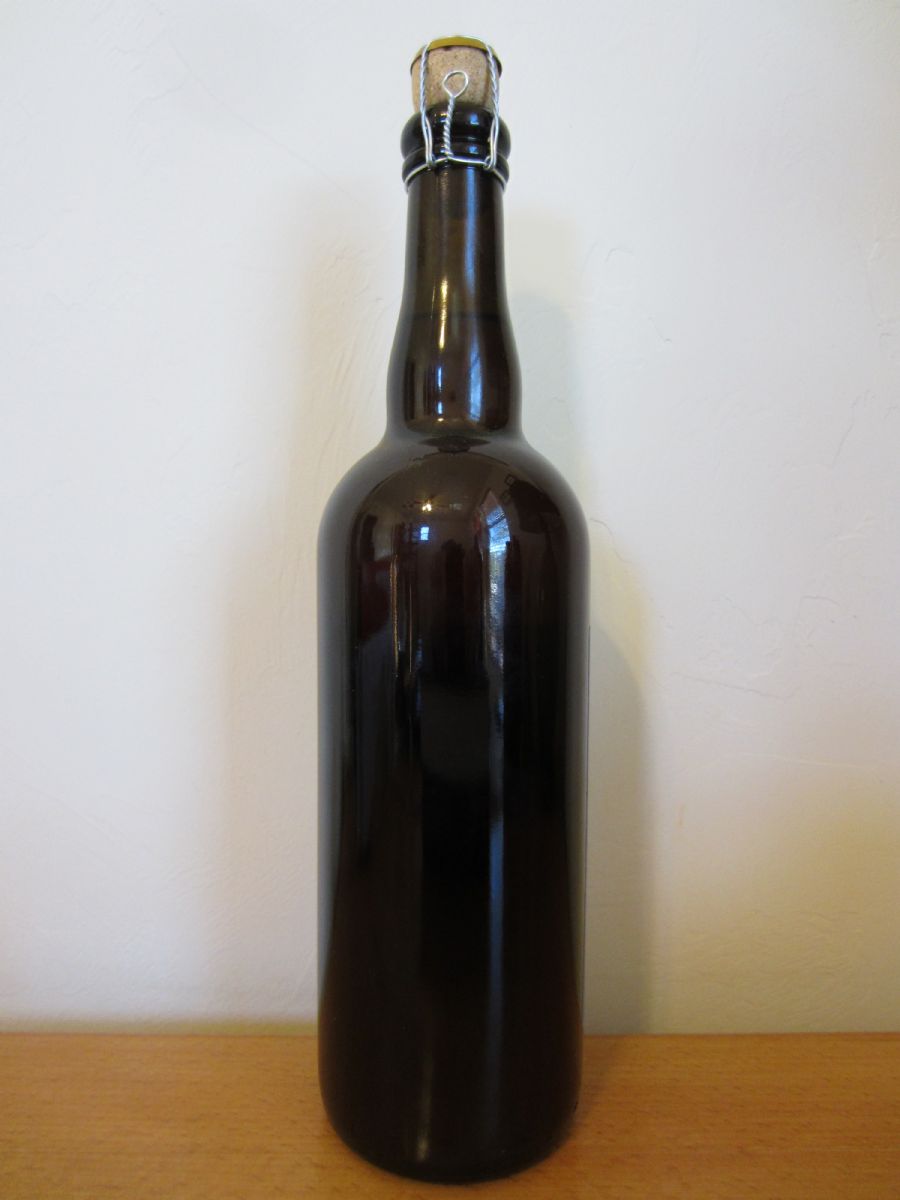
.JPG)
